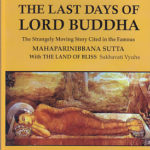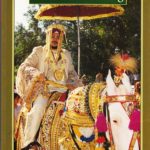Everyday Life of Hindu Nationalism: An Ethnographic Account, 1990-04
£10.95
Shubh Mathur
Paperback 9788188789535
Everyday Life of Hindu Nationalism is an ethnographic account of the rise of Hindu nationalism in the north Indian state of Rajasthan during the period 1990-94.
Description
The book looks at the transformation of cultural meanings in everyday life that make possible the political success and the anti-minority violence of the Hindu right. Media and academic accounts of the Hindu right that present images of religious frenzy and fanaticism are misleading because they draw attention away from the world of the everyday and the ordinary, from the homes, workplaces, schools and communities where the realities of Hindu nationalism are created and maintained. This book takes seriously the claims of RSS activists that theirs is a cultural organization, and that its main task is ‘character- building’, in order to answer the central question: How does one comprehend the selves that are capable of the extraordinary violence witnessed in India at the turn of the millennium?
The patterns of anti-minority violence that accompanies the rise of Hindu nationalism show that it follows not a political or economic logic, but a cultural one. The geographic and demographic distribution of violence maps and confirms cultural beliefs about the nation and its enemies. Finally, this book argues that media and academic discourses on Hindu nationalism function to produce what has been called ‘cultural anesthesia’, diffusing and deflecting questions about agency and accountability while silencing the experience of the victims and excluding the cultural idioms which provide them means of comprehension and healing.
Contents
Preface and Acknowledgements
I Introduction: The Everyday Life of Hindu Nationalism
- Two stories
- Culture and violence: In the light of Gujarat
- The ordering of difference
- Writing an ethnography of fascism
- Hindutva as symbolic capital
II Mapping the Enemy
- “The significant past”
- Culture and difference in the nineteenth century
- Conquest and conversion
- Tolerance, Hindu and Muslim
- “Muslim separatism”
III Administrative and Discursive Hindus
- A brief history of Hindu nationalism
- Street-fighters and patriots
- “A well-disciplined counter-revolutionary elite”
- “National thrust to ancient customs”
IV Communities and Power
- The Scream of Reich
- Banswara
- Beawar
- Seva Bharati: “Giving culture” to the urban poor
- Mohalla Khatikan
- RSS women
- Postscript from Gujarat
V Violence as Ritual
- Stories
- Suspect community
- The judicial inquiry
- Invisible violence
- The other point of view
Appendices
- Election results
- Population by religion
- Maps
- VHP-RSS materials
Bibliography
Shubh Mathur is an anthropologist whose work focuses on minorities, violence, human rights, gender and immigration. She received her doctorate from the New School for Social Research, New York. She is at present Visiting Assistant Professor of Anthropology at Franklin Pierce University.
She has written extensively in academic journals on issues of violence and human rights. in her capacity as an enlightened anthropologist she has been part of teams that conducted an inquiry into the Jaipur riots of 1992, and human right violations in Jammu and Kashmir. Her survey among the activists of Hindu nationalism and the Muslim victims of riots has contributed immensely to a theoretical understanding of right wing religious sectarianism and its social dimensions as well as the dynamics of hate politics in the context of neo-liberalism and religious fundamentalism. Her writings and the reports she has helped prepare on missing and disappeared persons in Kashmir have added valuable information to the understanding of the political and social situation in that region.
Additional Information
| By | Shubh Mathur |
|---|---|
| Published by | Three Essays Collective |
| ISBN | 9788188789535 |
| Format | Paperback |




